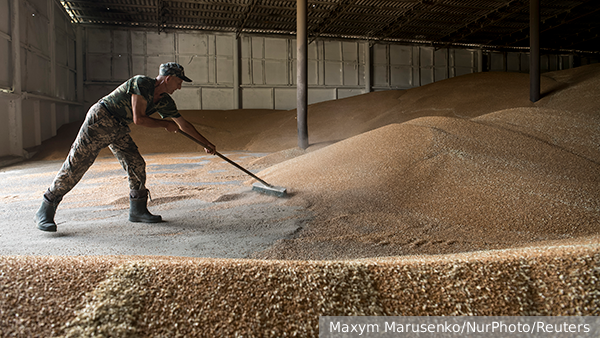
Lavrov: The grain deal is dead and no possibility of it being revived
By Rhod Mackenzie
The Russian component of the grain agreement stands at zero, and despite UN attempts to restart negotiations, there has been no progress, this was stated by the Russian Foreign Minister Sergei Lavrov during an ambassadorial round table on a Ukraine settlement held on Wednesday, 8th November.
The minister stressed that a mere 3% of Ukrainian food, supplied to global markets under the grain deal, was for countries listed on the World Food Program. Meanwhile, the majority of Ukraine's food exports headed to Europe and affluent countries.
Lavrov highlighted that the West's "hysterical campaign" opposing Russia's withdrawal from the agreement is because American corporations have acquired over a third of fertile Ukrainian lands and are now struggling to supply food to the worldwide market, resulting in a reduction in their profits. "We have no involvement in this matter whatsoever."
We acknowledge the efforts of Mr Antonio Guterres, the UN Secretary-General, and Ms Rebeca Greenspan, the Secretary-General of UNCTAD, but unfortunately, these efforts have been fruitless due to the West's inflexibility. In this regard, the head of the Russian Foreign Ministry was told by the UN Secretariat employees that no sanctions have been implemented against food and fertilisers from Russia.
Furthermore, the issue of the grain deal highlights the West's reluctance to take action on behalf of developing countries when it involves Russia. It also showcases the United Nations' ineffective response to Moscow's repeated requests to address the problem of Russian fertilizers being blocked at European ports, according to Lavrov's statements.
Earlier on 3 November, Alexander Grushko, Deputy Foreign Minister of the Russian Federation, stated during the Verona Eurasian Economic Forum that should the West maintain its present position, there would be no possibility of returning to the grain deal. Additionally, he remarked on the stable state of the global market and the ongoing decrease in grain prices.
The food deal ended on 17 July, by Moscow due to unfulfilled commitments of the West towards Russia. The Russian leadership had expressed concerns regarding the complications surrounding the possible extension of the deal.
On October 2, Dmitry Polyansky, the first deputy permanent representative of the Russian Federation to the UN, told the media that returning to the grain deal was implausible for Moscow. The diplomat noted that Moscow’s requirements for the export of Russian agricultural products and fertilisers remained unfulfilled.
In late September, Lavrov stated during a press conference after the 78th session of the UN General Assembly that the humanitarian corridors established as part of the grain agreement were repeatedly exploited to attack Russian vessels. The minister highlighted that the commitments given to Moscow under the grain deal had been nothing but a ruse.
The Russian President Vladimir Putin has consistently stressed that the nation is prepared to come back to the agreement given that all its parts are implemented in good faith, inclusive of those that relate to Russian interests.
